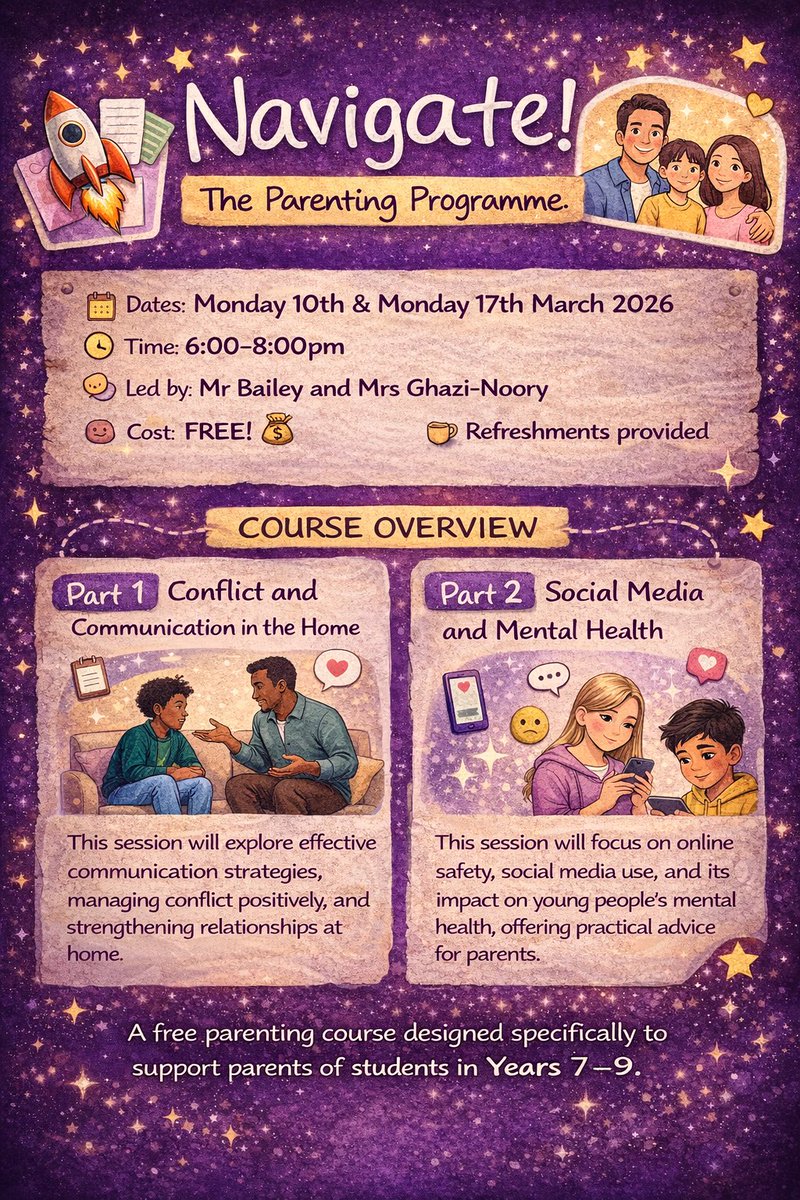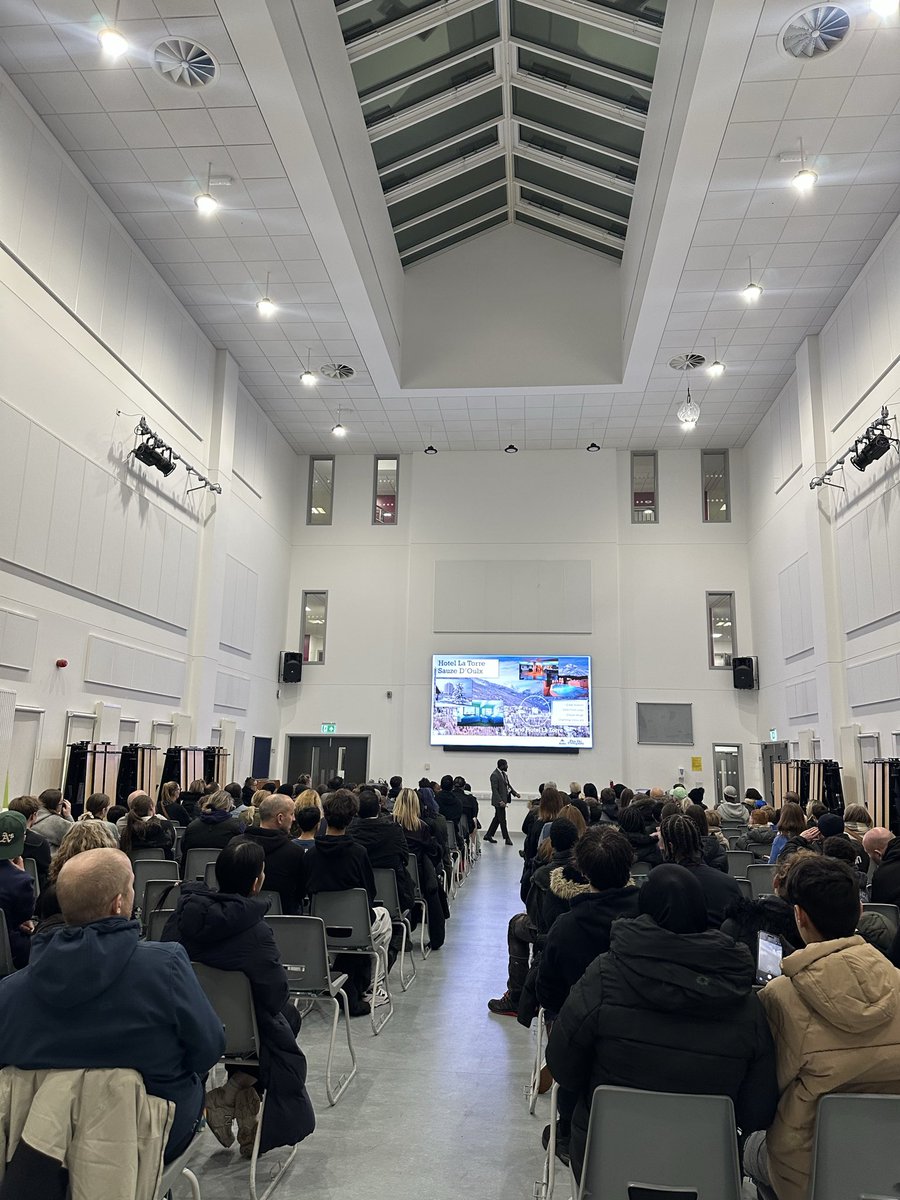
05/02/26
NAVIGATE: The Parenting Programme 📣 Parents/Carers of students in Year 7-9, we would like to invite you for a FREE programme. This two-part programme aims to offer practical guidance, reassurance, and strategies to help parents feel confident in supporting their children💜 pic.twitter.com/F8mlwpmEF6
follow us @HarrisGreenwich

15/12/25
‘Electric’ School Play with a live band of students. All choreographed by our performing arts team📽️⚡️ #hagr #harrisacademygreenwich
follow us @HarrisGreenwich

04/12/25
A wonderful experience taking some our students to The Queen’s House Ice Rink⛸️. The weather was on our side too!☀️ #iceskating #schooltrip #hagr #harrisacademygreenwich
follow us @HarrisGreenwich


26/11/25
Ski Trip Information Evening tonight⛷️. Thank you to all parents/carers who attended. Bring on March/April 2026! #ski #skitrip #schoolskitrip #hagr #harrisacademygreenwich
follow us @HarrisGreenwich

19/11/25
We’re officially BACK on X!🎉 Stay even more connected by following our Instagram: harrisacademygreenwich for daily updates. #hagr #harrisacademygreenwich
follow us @HarrisGreenwich

16/07/25
🌟 Exciting times ahead! Our Duke of Edinburgh Silver Award students are gearing up for their first day of the qualifying expedition. Best of luck to all participants as they embark on this adventure and showcase their skills! 🏕️✨ #DofE #Expedition #SchoolPride
follow us @HarrisGreenwich

15/07/25
Our Year 10 GCSE Business students explored London today, visiting the Bank of England Museum to learn about money management, followed by lunch in St Paul’s and a Marketing Workshop at Saatchi & Saatchi, one of the UK’s top advertising firms. 💰 🧑🎓💫
follow us @HarrisGreenwich

14/07/25
🎉 Exciting news from our Art department! We received a delightful surprise gift from the talented British artist @stuartsemple. He is generously gifting 50 schools one of his incredible “Art Aid Kits”! 🎨✨ Thank you, Stuart, for inspiring creativity in our students!
follow us @HarrisGreenwich

07/07/25
Day 1 of our Key Stage 3 Sports Activity Day was a huge success! 🎉 From exciting games to team-building challenges, everyone had a blast! 🏃♂️🤝 Let’s keep the energy high for more fun tomorrow! 💪 #SportsDay #TeamSpirit #FunTimes
follow us @HarrisGreenwich
04/07/25
RT @HaimoSchool: Thank you @HarrisGreenwich for an amazing sports day today! Children and parents in KS1 and KS2 had a fantastic time! 🏅 ht…
follow us @HarrisGreenwich

04/07/25
Thank you @HarrisGreenwich for an amazing sports day today! Children and parents in KS1 and KS2 had a fantastic time! 🏅 pic.twitter.com/mIK5AbbZW0
follow us @HarrisGreenwich



23/06/25
"Exciting day @HaimoSchool with our Year 9 sports leaders hosting the nursery and reception sports day! ☀️ Lots of smiles and fun under the sun! 🏅😊 #SportsDay #Leadership #Haimo"
follow us @HarrisGreenwich
06/06/25
RT @mwrightmusic_ed: Yessss!!! 🙌🎼🎵🎸 @HarrisGreenwich smashing it as usual ☺️
follow us @HarrisGreenwich

06/06/25
Yessss!!! 🙌🎼🎵🎸@HarrisGreenwich smashing it as usual ☺️ https://t.co/8TCoxHQSLO
follow us @HarrisGreenwich

28/04/25
At the Bank of New York HQ, the final five schools of the Young Enterprise Company programme presented their business journeys. HAGR won the Team Journey Award for best overcoming challenges, despite being first-year participants among competitors with 5+ years of experience. ✨
follow us @HarrisGreenwich

11/04/25
Congrats to our DofE students for completing their practice expedition last week! They tested their limits, built resilience, and showcased great teamwork in the outdoors. #DofE #Expedition #OutdoorAdventure
follow us @HarrisGreenwich

27/03/25
Today our Year 12 students shared their exam preparation advice with Year 11 in assembly this morning. 🎓✨
follow us @HarrisGreenwich


